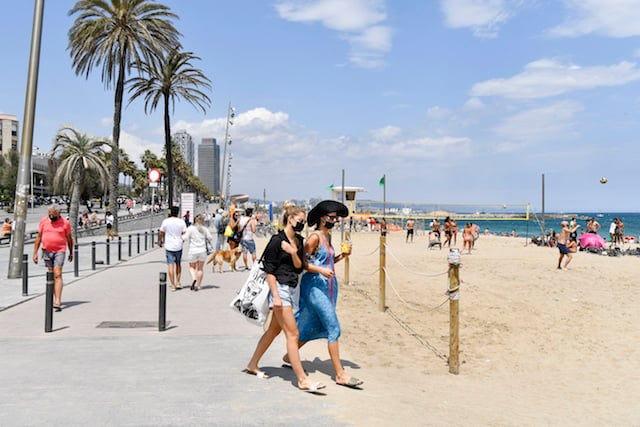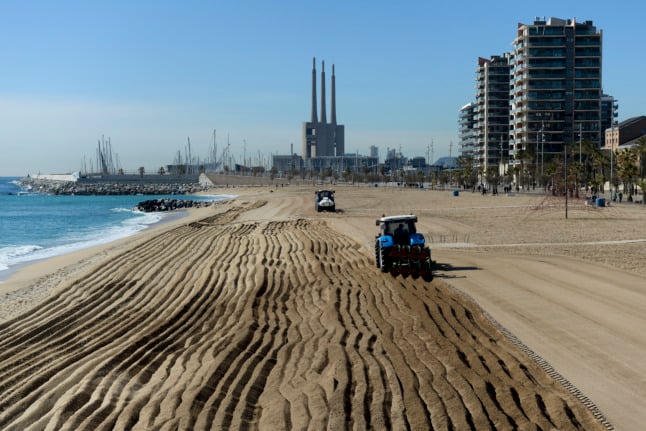The former education minister in the Catalan regional government of CarlesPuigdemont is wanted in Spain for alleged sedition over the failed 2017 independence bid.
An economics professor at St Andrews University in Scotland, her extradition case in being heard at the courts in Edinburgh.
But once Britain leaves the European Union on Friday, she will automatically become a member of the European Parliament — something she believes will give her immunity from extradition.
After Brexit, additional MEPs elected in the remaining member states will be installed to fill empty seats left behind by the outgoing British deputies.
Following the May 2019 European Parliament elections, Ponsati is due to take one of the five seats reallocated to Spain, as an incoming MEP for the Together for Catalonia party.
Once Ponsati joins the European legislature, the 62-year-old hopes to benefit from immunity, as Puigdemont and a former Catalonia health minister Toni Comin already do as MEPs.
“Once I become an MEP, I get immunity from prosecution — and that means that the Spanish justice should withdraw the order of arrest against me,” Ponsati told AFP at her home in the small Scottish town of Leuchars.
“I should be free to walk in Barcelona without being threatened with arrest.”

Clara Ponsati smiles as her lawyer Aamer Anwar (C) reads a statement outside Edinburgh Sheriff Court in November . Photo: AFP
May court date
However, Ponsati knows that the Spanish authorities may not give in so easily.
Madrid has not withdrawn the arrest warrants issued for Puigdemont and Comin.
The Belgian judge who examined their extradition requests decided to suspend them when they became MEPs, meaning they can freely move around Europe – although, as a precaution, they do not return to Spain.
Ponsati believes the Scottish courts will be sensitive to her case.
“It's for the Scottish judges to decide what the implications of my MEP status are. I totally trust justice in Scotland,” she said.
Furthermore, with Brexit, the European Arrest Warrant could lose its validity in the United Kingdom and have to be replaced by an international extradition request, starting a complex process which Ponsati could claim was politically motivated.
“The fact that Spain is not respecting European law certainly has an effect on how external judges see the way Spanish justices are managing the conflict in Catalonia,” she said.
After voluntarily going to the Scottish police in November, Ponsati was released on bail.
Her extradition case is due to begin on May 11th, following a preliminary hearing on March 5th which could decide on her immunity claim, as she will be an MEP by then.
She has raised more than £166,000 ($217,000, 197,000 euros) in online donations towards her legal costs.
Championing self-determination
“I do expect to be sitting in the European Parliament in a couple of weeks,” Ponsati said, but she does not intend to settle in Brussels or Strasbourg straight away.
“I have a case in Edinburgh that I need to attend. I intend to obey the orders of the Scottish justice,” she said.
“At the same time, I have very strong links with Scotland, so my intention is to remain a resident of Scotland,” she added.
Ponsati had been working in the St Andrews economics department before becoming Catalonia's education minister.
Once in the European Parliament, she wants to be “championing the cause of self-determination in Europe”.
Ponsati wants to defend the Catalan culture and language, but also “champion the case of Scotland in the European Union”.
As part of the UK, Scotland will be leaving the EU, though a majority within Scotland wanted Britain to remain in the bloc.
At the Spanish authorities' request, the European Parliament is considering whether to lift the immunity on Puigdemont and Comin — a process Ponsati would also become involved in.
“It's a matter of what majorities support what, and we cannot anticipate how things will go,” she said.
“I'm expecting the president of the European Parliament to defend the rights of the people that voted for me.”
By AFP's Stuart Graham and Anna Cuenca





 Please whitelist us to continue reading.
Please whitelist us to continue reading.
Member comments